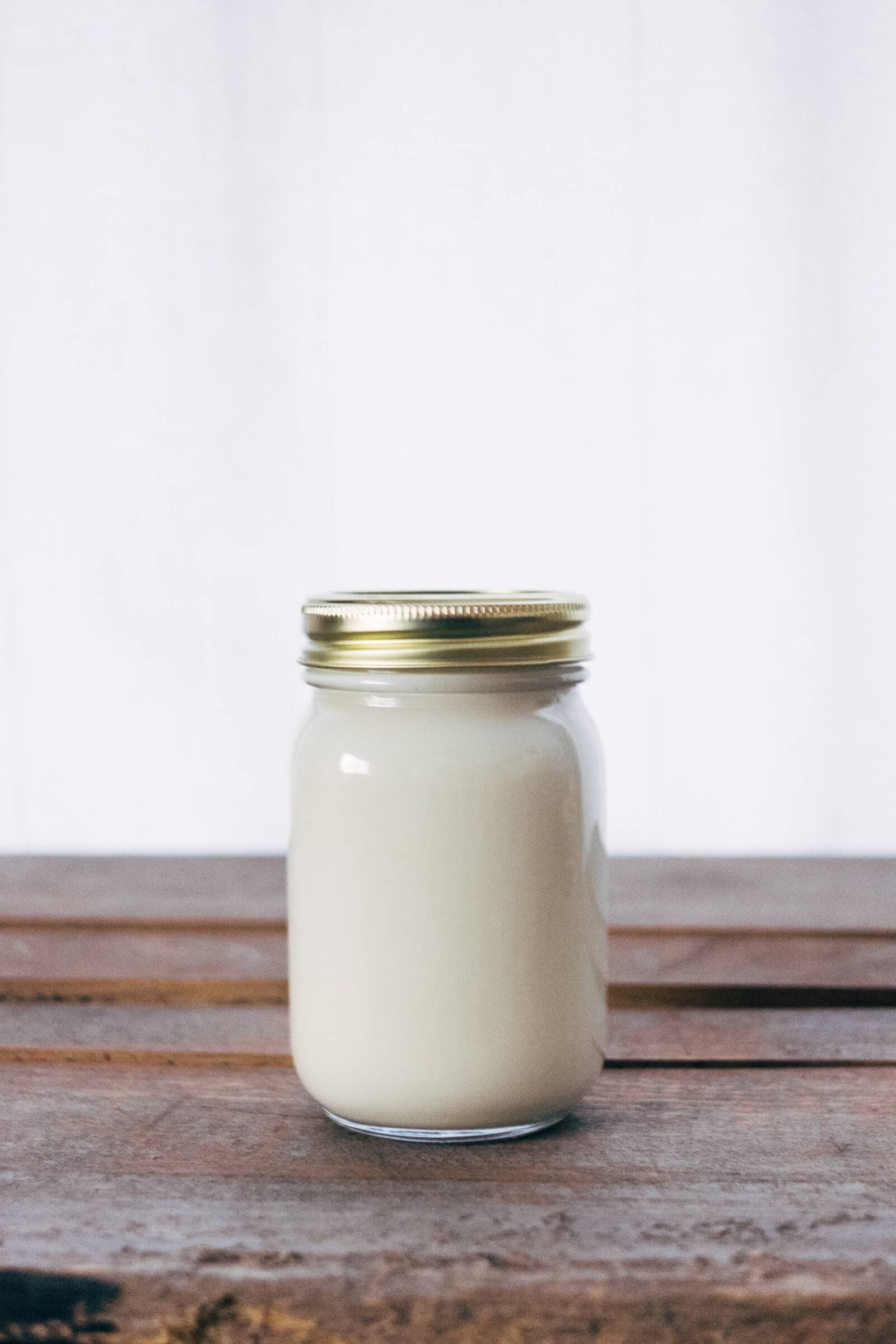
One of the easiest foods you can give to your baby or toddler is yogurt. Just open it up, pour in a cup or bottle and give them to drink or eat with a spoon.
But when choosing the right kind of yogurt for your child, it may become a whole different story.
There are so many different types and versions of yogurt on the grocery store shelves that sometimes it seems almost impossible to choose given that so many are loaded with unnecessary sugars and additives.
Well let me tell you a secret. You just have to follow a few simple steps and you'll no longer be standing in front of the yogurt shelf for ages. And you'll have a content little baby or toddler sipping happily on their nutritious and natural yogurt.
Jump to:
When Can I Give My Baby Yogurt?
As soon as 6 months of age!
The old recommendations said to wait until your baby was at least 9 - 10 months of age but this is no longer the case.
So you can safely give your baby plain yogurt as soon as they start solid food.
You should still avoid cow's milk for your baby since it contains protein structures that can be hard to digest before your baby turns 1. But cow's yogurt and other fermented products such as kefir and soft cheese are safe options.
Kefir is especially great because it has gut-friendly bacteria that keep your baby's/toddler's gut healthy.
But which yogurt should you choose? Read below so you never have to worry again.
And to learn more about weaning, check out our Starting Solids Guide - The Ultimate Guide and How to Wean from the Bottle guide.

What to Look For In A Yogurt for Baby or Toddler?
When talking about the best yogurt for your baby or toddler, it's more about looking for those ingredients that you don't want rather than the ones you do want.
We will go over the yogurt do's and don'ts and then explain why each is important.
The Baby / Toddler Yogurt Do's
- Natural, plain yogurt
- Made from whole milk
- Creamy texture for hard yogurts
- Liquid enough to drink from a cup for drinkable yogurts
- Has a shorter expiration date rather than longer (about 2 weeks)
- Organic or made from milk from free-range or grass-fed cows
The Baby / Toddler Yoghurt Don'ts
- No added sugar (especially high fructose corn syrup – HFCS)
- No added salt
- No added preservatives
- Avoid high protein yogurts
- Avoid store-bought fruit yogurts
So what you are really looking for is something like this written on the packaging:
Ingredients: whole milk, live active cultures
Why Whole Milk Yogurt?
When choosing yogurt for baby or toddler, I always recommend going with whole milk options. The reason for this being that babies and toddlers are in a phase of rapid growth and development and require more fat and calories from food than they will later in life.
Whole milk yogurt contains enough fat and calories that can support their balanced nutrition in this period in their lives.
Once your toddler reaches 2 years of age, if you want to, you can shift to lower fat options, but I wouldn't recommend going all the way to skimmed milk yogurt. This is not necessary unless recommended by a pediatrician for weight management purposes.
Staying with whole milk yogurt for baby and toddler options is still fine after 2 years of age also.
Why Plain Yogurt?
I always recommend buying plain yogurt for one main reason. And that is because flavored yogurts almost always have added sugar or high fructose corn syrup (HFCS).
However, if you do happen to stumble upon one without anything other than milk, yogurt cultures, and a simple added flavor (e.g. natural fruit, vanilla extract, or cocoa) please let me know of the brand and type. It would be a great choice to buy and serve your baby or toddler and I'd love to share it with others.
If you don't find natural flavored ones, then I have simple solution for that also.
Make your own! Yes, it's easy and can be really delicious!
Homemade Fruit Yogurt For Baby and Toddler
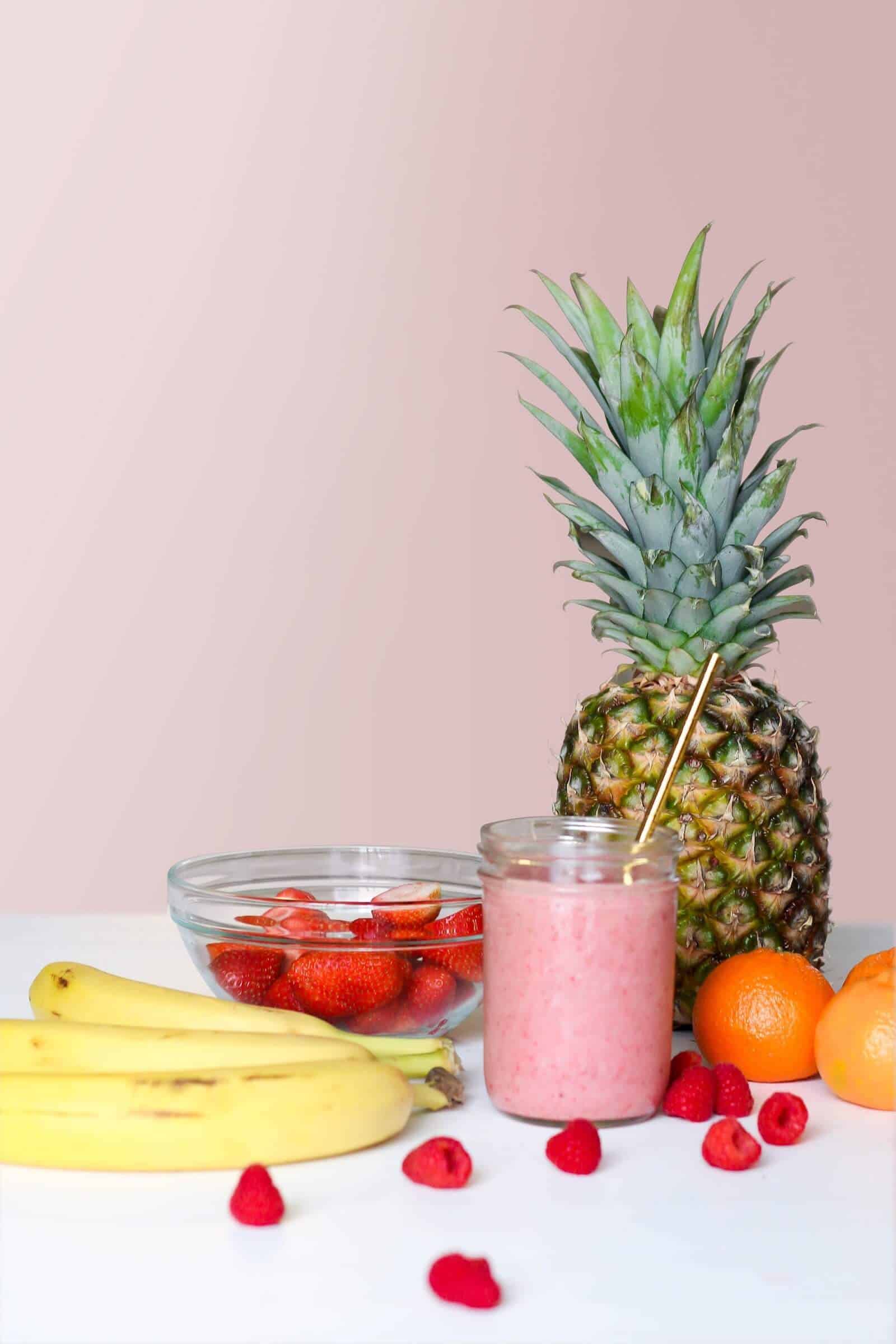
Just mash or blend fresh fruit and simply stir it into yogurt. I'd recommend using naturally sweet fruits such as banana, strawberries, mango, or pineapple. But if your baby or toddler loves sour stuff you can go with fruits like berries, kiwis, or oranges also.
I don't recommend using frozen fruit because they tend to release a lot of water when thawed so your yogurt might end up runny and watery rather than hard and compact.
I use this compact blender to make our yogurts.
Homemade Veggie Yogurt For Baby and Toddler
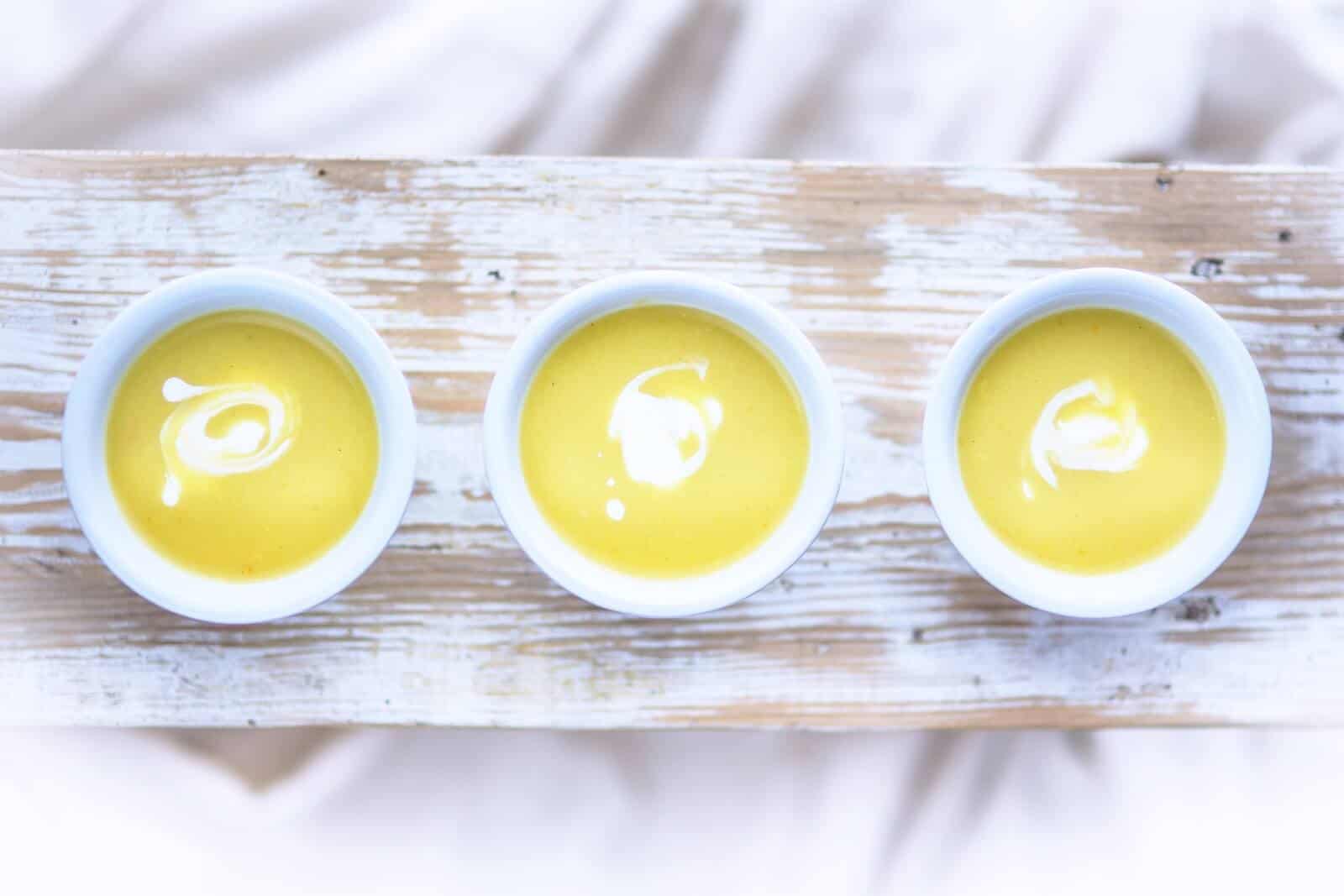
There are also some lovely veggies that have a sweet flavor and creamy texture which makes them ideal as yogurt flavorings.
Sweet potato, squash, and pumpkin just being a few of them.
Unlike fruit you'll have to cook these before stirring into plain yogurt but it is worth the trouble.
Homemade Chocolate Yogurt For Baby and Toddler
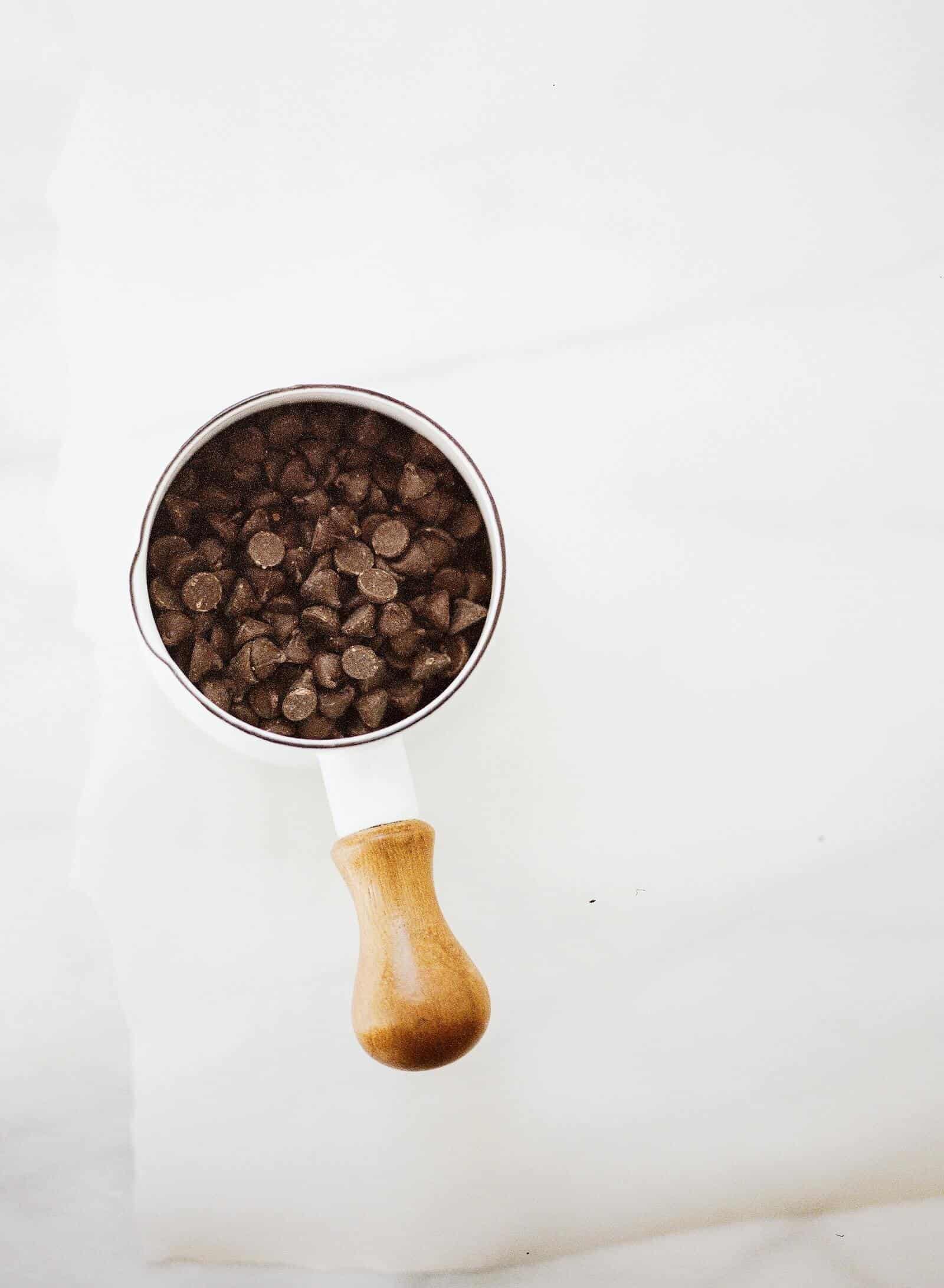
My son simply loves this! And I have two ways of making homemade chocolate yogurt.
The first option is to melt darker chocolate (50% and higher cocoa percentage) and stir it into plain yogurt.
The other option is to use raw cocoa powder and a sweetener such as honey, agave, or date syrup and stir into plain yogurt. Avoid honey if you're serving to a child younger than 1 year.
Both options are delicious and make a really quick and easy snack.
Why Not High-Protein Yogurts?
Yogurts that contain a lot of protein like Skyr or Greek Yogurt are not the best option for babies and toddlers.
This doesn't mean that you can never give them to your baby or toddler but I'd reduce it to a maximum of 2 servings per week.
That's because excessive protein can be hard to digest and also babies and toddlers shouldn't really have much higher protein intake than recommendations because it can lead to deterioration in their growth and development.
Can I Do Non-Dairy Yogurt for a Baby or Toddler?
Of course. And actually the same do's and don'ts apply as for plain yogurt made from cow's milk.
I would however recommend choosing higher fat and calorie options such as yogurt made from coconut milk.
Almond milk yogurt is also a great option especially if you add some nut butter to it.
Make sure that any non-dairy yogurt you choose has added calcium, as otherwise you need to make sure they get their calcium intake from other sources.
How To Serve Yogurt to My Baby or Toddler?
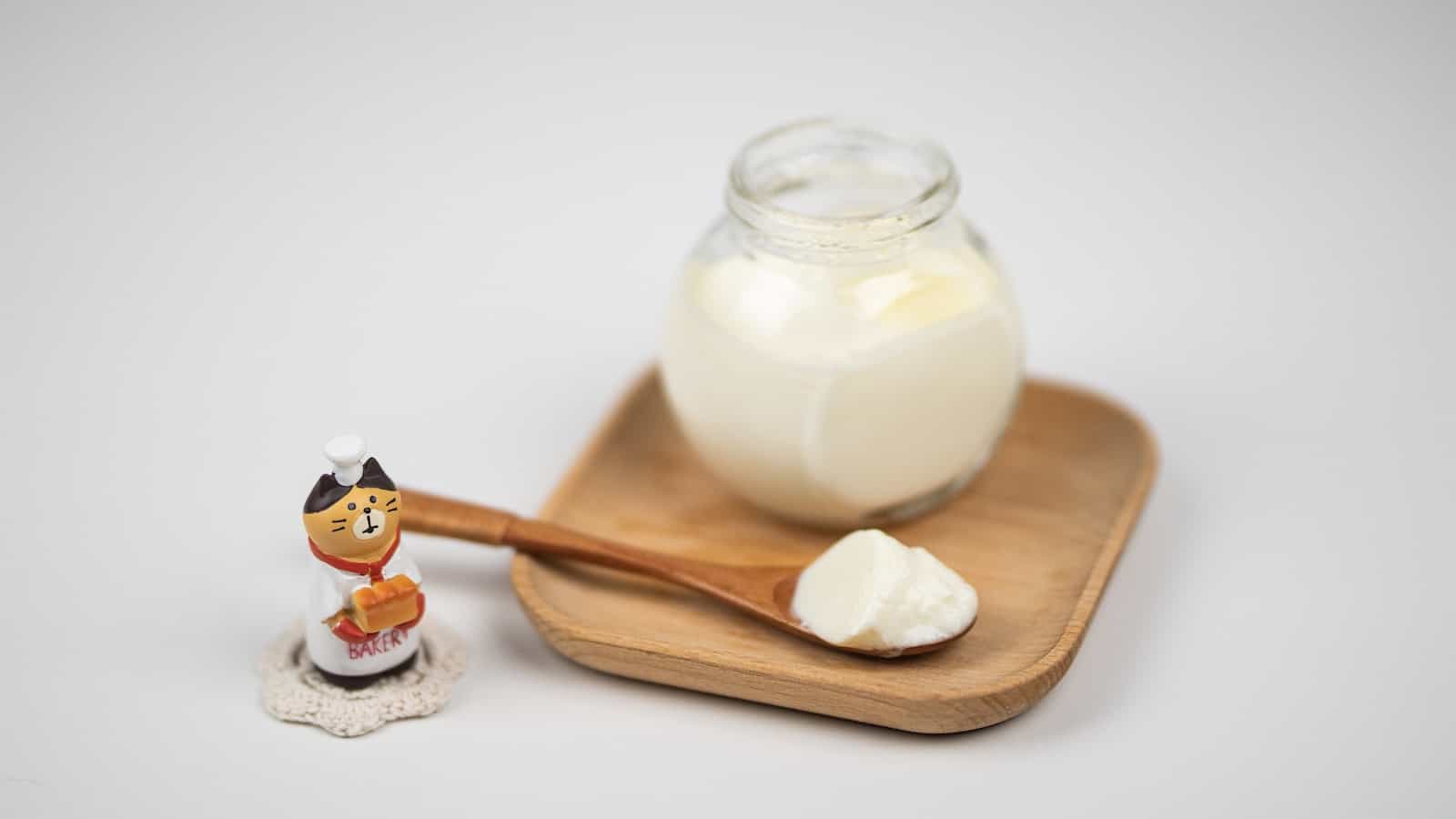
If you've started your baby on purees, then you'll probably spoon-feed yogurt to your baby right up until they are able to do it themselves.
It won't be pretty but they'll love it. You'll be left with the cleaning afterward, but it's totally worth it!
Once your baby gets used to puree feeding, you can start pre-loading their spoons with yogurt and handing them over so they can feed themselves. This can help them to develop the ability to use utensils by themselves.
What I've also found handy are drinkable yogurts (like kefir). They're really great to mix into breakfast porridges but also to give as a drink in a cup. Especially if you're teaching your baby open cup drinking from the start. Change water in a cup with drinkable yogurt (plain or flavored) to make things more interesting.
Final Thoughts
So really the whole "how to choose a yogurt for baby" debate can be summed up into a few points:
- Plain yogurt with nothing added than yogurt cultures
- Add only fresh fruit, cooked veggies, or natural flavorings
- Mix between hard and drinkable yogurt
And let us know your favorite brands that have natural ingredients.
More Baby And Toddler Articles:
Looking on more articles for ideas on baby and toddler food? Check these out:

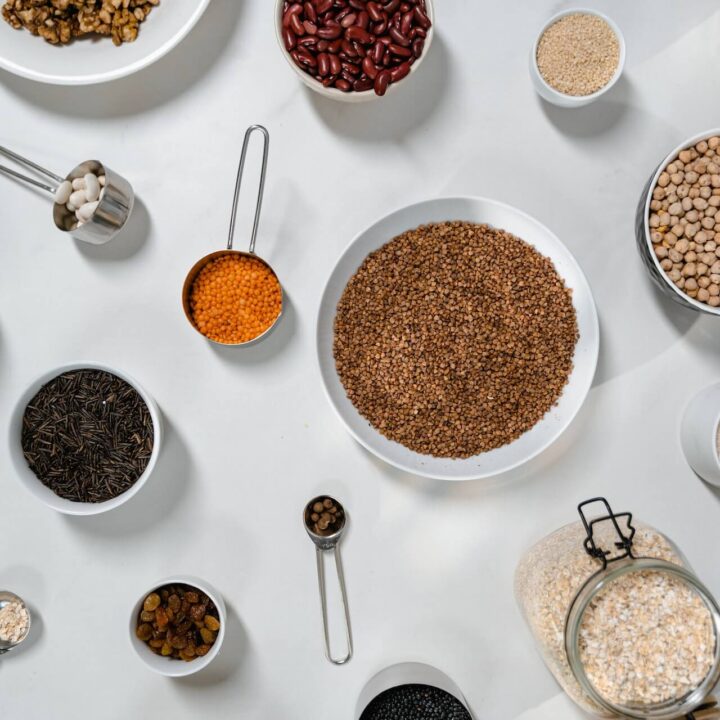
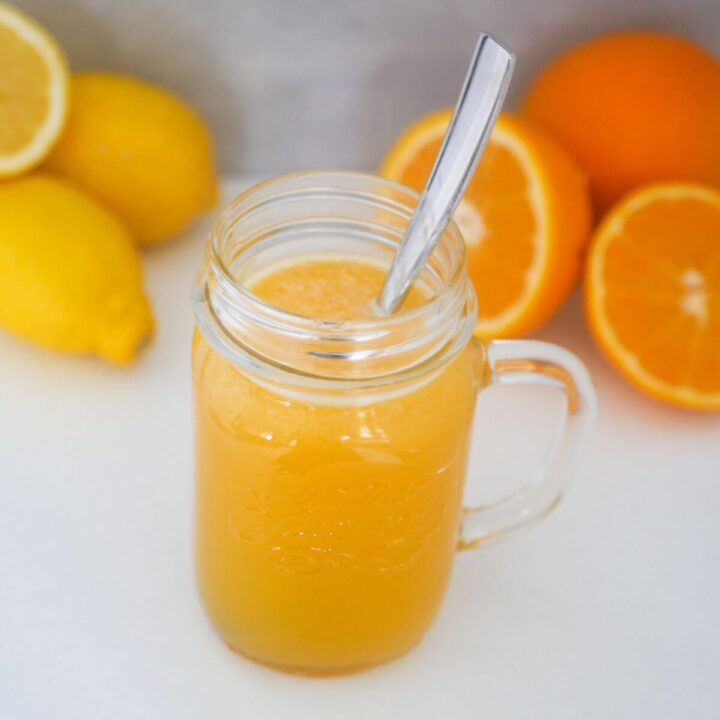
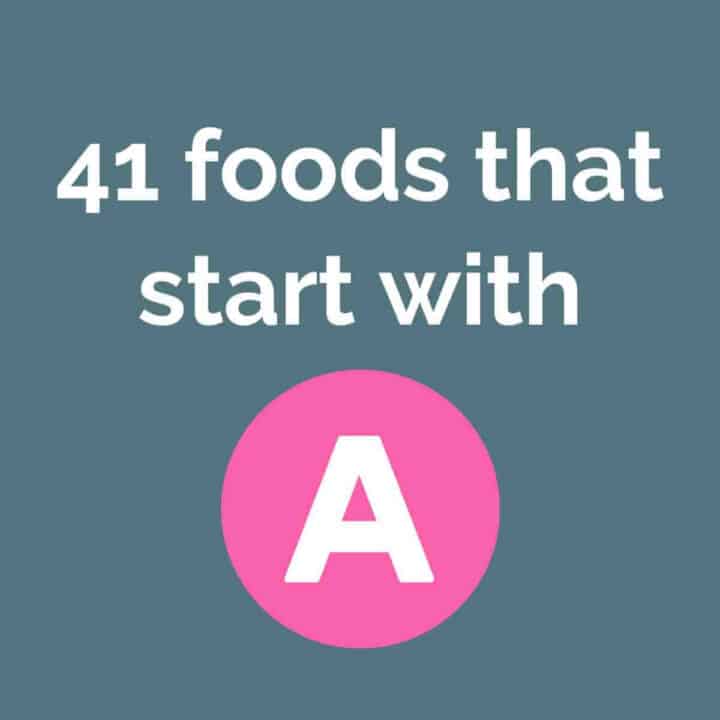
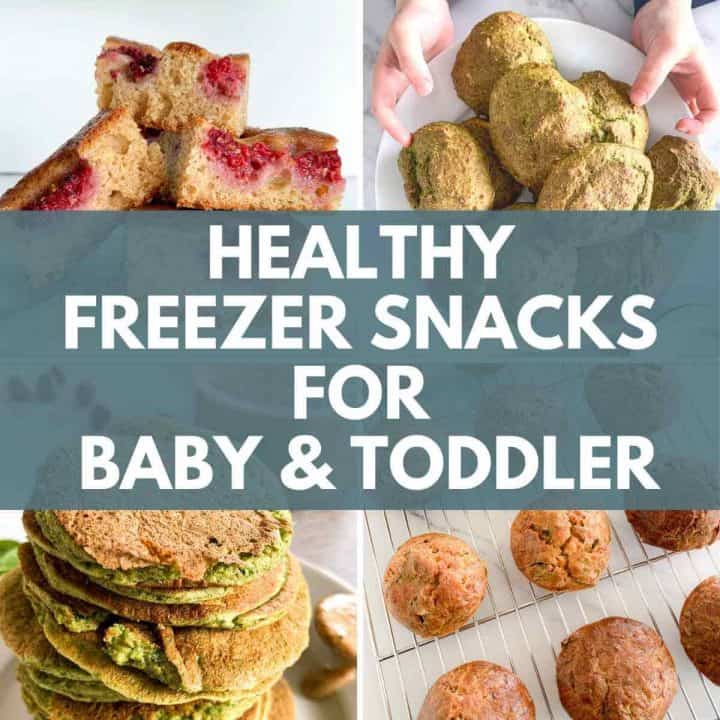
Comments
No Comments